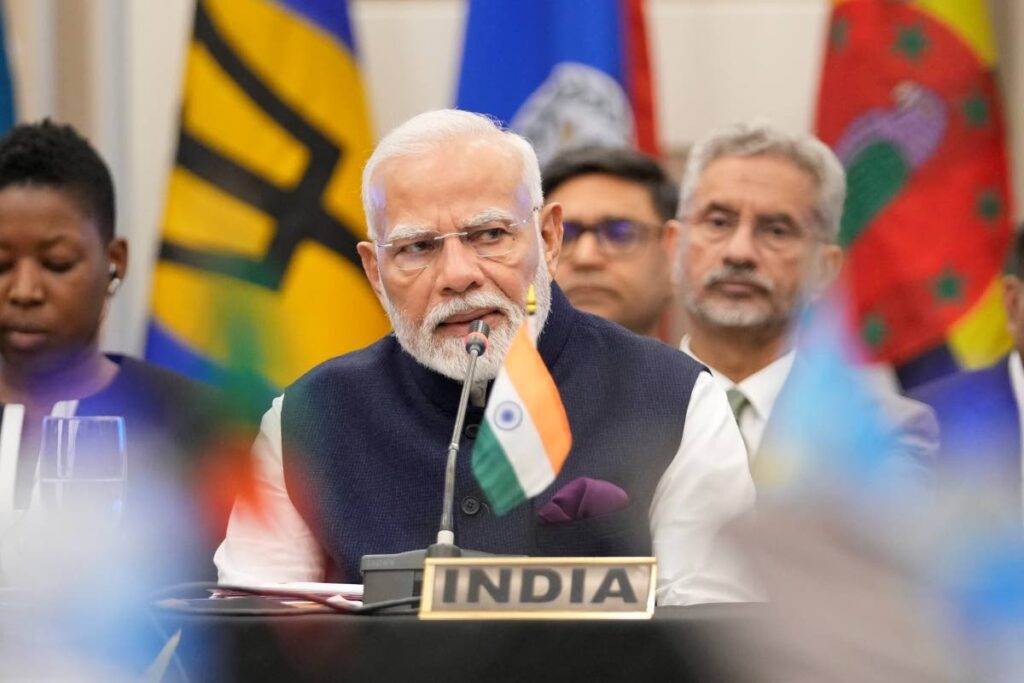India, Caricom connections

FEW CARICOM gatherings have been as vital to the region’s interests as those unfolding in Guyana this week.
India’s Prime Minister Narendra Modi touched down in that country on November 20 to start a whirlwind visit.
After his departure, Caribbean leaders will continue to huddle, focusing their attention on crime as a public health concern, a sequel to the symposium on the same theme held in this country in 2023.
The courting of the Indian leader, fresh off his participation in the G20 summit in Brazil, has practical implications, while the law-enforcement conference is largely symbolic. Both are indispensable.
Caricom leaders need to be clear-eyed about where the world is in these perilous times. They must close ranks for the sake of the region.
TT’s Prime Minister, who flew to India in May to meet businesses and officials in Mumbai, would be wise not to squander this opportunity in Georgetown and all that arises from it.
The re-election of Donald Trump as US president could change the multilateral order that had prevailed since the Marshall Plan enacted by the US in the wake of World War II.
The fighting between Russia and Ukraine appears to be intensifying in the dying embers of Joe Biden’s administration. There is no end in sight for the Israel-Gaza war.
Mr Trump is yet to set foot in the White House – though he met with Mr Biden on November 13 – but he has already raised a number of eyebrows and set tongues wagging with his choices of nominees to fill his Cabinet and government.
The subtext of the Caricom-Modi engagement, the second of its kind, is the urgent need for regional leaders to achieve several objectives.
Beyond deepening historical ties and strengthening co-operation, the bloc needs to court a global ally for at least two issues: the climate crisis and the threat of war.
India is one of the world’s largest emitters of carbon, with Delhi covered in smog each winter – the smog is particularly bad at present. Its pollution targets and its support of green accords are important; already it has urged rich nations to do their part while leaving room for Global South nations to be supported.
While there are many countries this region needs to collaborate with, including those in Africa such as Ghana, India is unique.
It is the world’s most populous country, with one of the largest armies. It has a strategic relationship with Russia and shares a border with China. It could be a vital mediator if the Caribbean is to remain a zone of peace, particularly given the uncertainty surrounding Venezuela.
Mr Modi is no stranger to controversy, but given what is taking place in the US and how its governance structure is taking shape, it is not only prudent but imperative for TT and the wider Caribbean to maintain dialogue with our global friends, including India.

Comments
"India, Caricom connections"